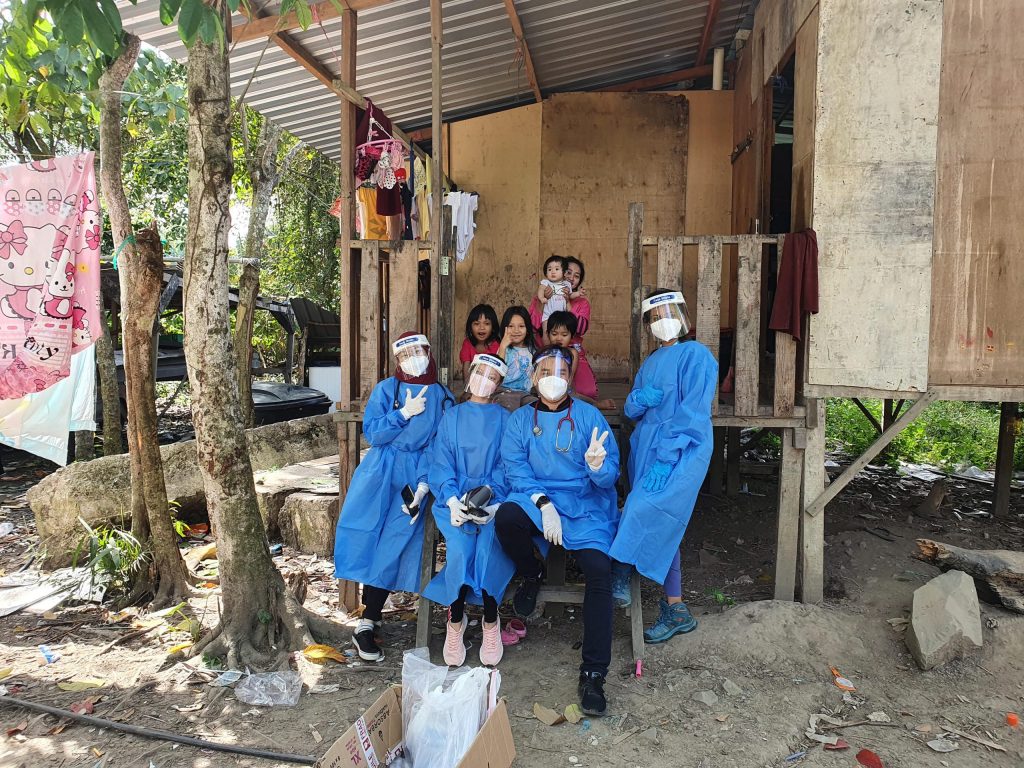To many urban dwellers in Malaysia, it takes only approximately 16 minutes to arrive at the nearest clinic or hospital – however, a villager in Sabah would need to travel at least 30 minutes to an hour to reach the nearest clinic or hospital[1].
Accessibility is only one of the problems. Quality is another. Many rural healthcare facilities lack basic infrastructure. 70.7% of public health clinics do not have laboratory services and some 88.9% do not even have x-ray services[2].
Coupled with these limitations, the latest data in 2016 indicates that not all states are provisioned with medical doctors equally[3].
The need for accessible healthcare is dire and we must close the gap between urban and rural healthcare services for Malaysians and those residing in this country – including refugees, asylum seekers and the stateless who have long been denied the crucial need for basic healthcare in a country they call home.
Stepping into the scene, Doctors On Ground (DnG) was established in 2021 to provide basic healthcare to the marginalised communities in Malaysia within the comforts and safety of their own homes. The NGO has assisted in medical funding and medical aid to over 700 families across 8 states in Malaysia.
The Two Doctors Behind DnG, Among Many Others
The chief physician at DnG is Dr Jeevitha Brama, a radiology medical officer at Pusat Perubatan Universiti Malaya (PPUM) and she takes her lead role at DnG very seriously. It was almost second nature to her when she chose to pursue medicine.
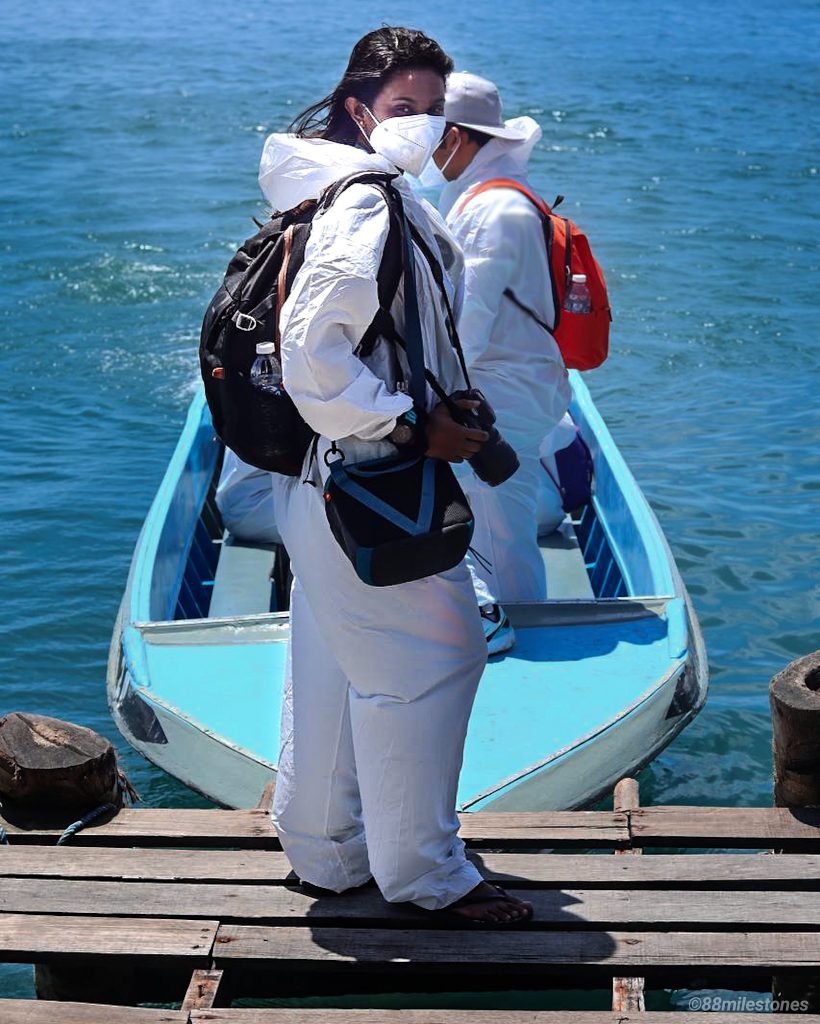
It might have started as just another cliche; growing up in an Asian family where you are expected to hold a stable job. My mother was a nurse and my sister was studying medicine. But I was never coerced into it. My parents had always been supportive of my choices and I pursued medicine simply because it suited me better.– Dr Jeevitha Brama, Chief Physician at DnG
An avid traveller, Dr Jeevitha had always been fascinated by the sheer force of doctors working with the United Nations. When she was asked during her medical school admission interview about the reason behind her choice of profession, she replied:
I saw myself travelling to remote parts of the world, joining medical missions in places that lack medical access. – Dr Jeevitha Brama, Chief Physician at DnG
Her involvement in DnG is an extension of her desire to volunteer and give back, and soon, she became attached to the greater cause.
On the other hand, Dr Aravind Giri, an emergency medicine medical officer at Hospital Tengku Ampuan Rahimah is the lead doctor overseeing DnG’s Selayang base. He grew up at an estate plantation in Sepang, Selangor and had witnessed first-hand how certain medical conditions are more prevalent among low-income communities. These medical conditions often had to do with poor sanitation and hygiene practices and poor air quality.
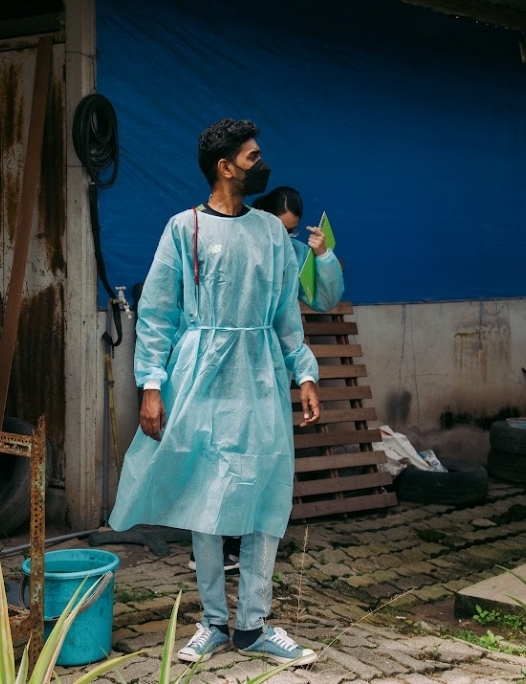
Since young, I dreamt of venturing into a dynamic profession requiring communication, travelling, lifelong learning and altruistic in nature. The hurdles in my life journey encouraged me to impact positively and treat the ill. – Dr Aravind Giri, medical officer at DnG
Dr Aravind caught wind of DnG’s efforts among the refugees and immediately jumped on the bandwagon to help.
I was introduced to DnG by friends and mass media. I grabbed the opportunity as a volunteer medical officer and have since done field visits, organised humanitarian camps, medical screening and advised on pre-existing health issues in refugee communities. – Dr Aravind Giri, medical officer at DnG
Dr Aravind is well-aware of the barriers refugees and marginalised communities face when trying to access Malaysian healthcare services. Due to lack of documentation, financial constraints and the struggle to survive, refugees living in Malaysia are often neglected and sidelined when it comes to healthcare care.
Lessons Learned From Serving The Marginalised
As volunteer doctors with DnG, both Dr Jeevitha and Dr Aravind have had the opportunity to travel to different states in Malaysia to serve different communities. Through observation, they have realised that geographic location plays an important role in determining accessibility and resource availability. Dr Jeevitha shared about a medical mission to Sabah highlighting this disparity.
Take Sabah as an example – medications are usually more expensive and stock out faster than Peninsula. If we ventured into floating slums and rural interiors, issues such as poor water sanitation, hygiene and remote access made it more difficult to extend the needed aid. – Dr Jeevitha Brama, Chief Physician at DnG

Some communities in Sabah are still lacking access to clean water, and this has given rise to water-borne diseases, parasitic and skin diseases. Dr Jeevitha has also observed that there are chronic diseases such as diabetes, hypertension and gastrointestinal-related diseases that are prevalent among community dwellers.
Besides serving the communities in remote areas such as Kedah, Penang, Pahang and Terengganu, DnG also focuses on suburban areas where Dr Aravind is often involved in. The illnesses that Dr Aravind has been treating include patients that require special care and cancer patients that require palliative means.
Some have also contracted illnesses such as chronic liver disease and Cushing syndrome that require a holistic treatment approach.
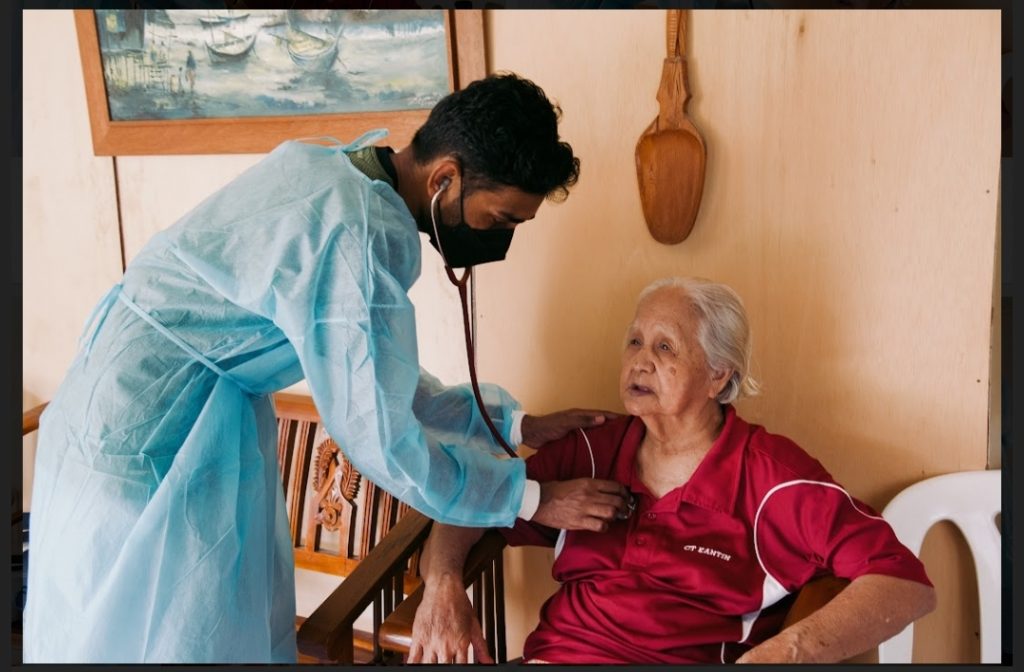
Teaching People That Prevention Is Better Than Cure
Much of the work that DnG does involves attending to urgent medical interventions rather than preventative care. Dr Jeevitha observed through her medical missions that the are many hindrances inhibiting the community from seeking medical help immediately.
They lack the proper education to know when to seek medical help. I cannot fault them for their ignorance as they have no clear understanding of it. Sometimes the cumbersome process of getting to the nearest healthcare facility from an island or remote area is enough to impede future follow-ups.
Patients with chronic illnesses are often a challenge as it requires long term care and the provision of lifelong medications. Many marginalised communities, such as the stateless, are unable to afford prolonged care and medications. – Dr Jeevitha Brama, Chief Physician at DnG

Currently, DnG collaborates with a local NGO, Doktor and Pendidik Komuniti Kita to assist in fieldwork and report issues on the ground that involves diagnosis or medical supplies shortages.
Many of them within the community were happy for us to come on a monthly basis to follow up and supply the needed medication at zero cost. – Dr Jeevitha Brama, Chief Physician at DnG
However their efforts are funded often from their own pockets, so procuring funds to continue assisting the community is a challenge.
Even so, Dr Jeevitha recognises that they are in it for the long haul and she has a great vision for the organisation.
I hope that DnG Malaysia will be the next ‘Medicine Sans Frontier’ in South East Asia. I want it to be a platform where doctors, allied healthcare workers and medical students can come together and provide holistic and sustainable healthcare to communities who need it the most. – Dr Jeevitha Brama, Chief Physician at DnG
The Need For More Accessible Healthcare
Malaysians are blessed with affordable and accessible healthcare, however, there are pockets of the community that have missed out on the privilege. The marginalised communities DnG works with primarily are denied basic healthcare. As the Hippocratic oath taken by doctors, there is no denying that both Dr Jeevitha and Dr Aravind uphold the value of assisting their patients.
It is crystal clear to Dr Jeevitha that with every medical mission she is a part of, there is a need for more accessible healthcare.

Our mission takes us to the most remote parts of Malaysia and every location has a common theme. They all have expressed the need for more accessible healthcare. – Dr Jeevitha Brama, Chief Physician at DnG
Working in the field has only emphasised that little help goes a long way for the marginalised communities. The communities remained appreciative of their efforts despite any setbacks. This has only provided Dr Jeevitha and Dr Aravind the motivation to continue their noble efforts.
It is a brazing reality check that everyone needs in their life. All of these communities have a common thread, in that they are content with what little they have. And that they truly appreciate every help and care given despite setbacks. Indeed, it humbles you and that alone is enough of a motivation to keep me going. – Dr Jeevitha Brama, Chief Physician at DnG
The medical profession has often been associated with its promised glory and academic vigour. But to Dr Aravind, it is the need to serve that keeps him going. Dr Aravind is also working towards a specialisation in the medical field that would add value to his medical missions.
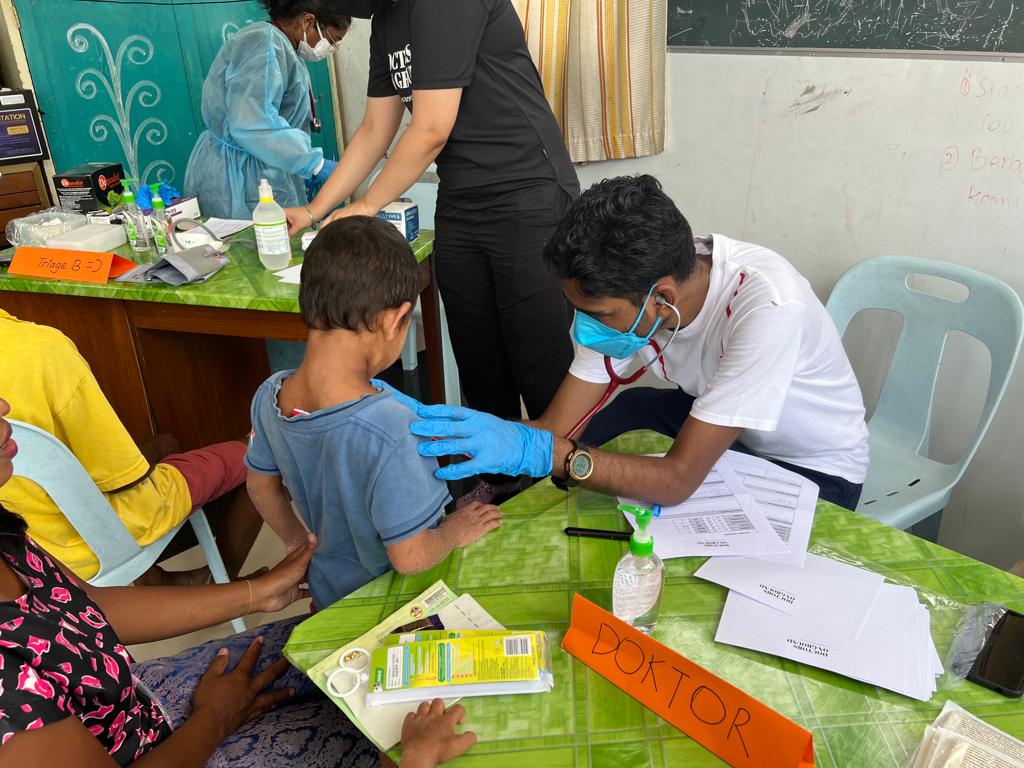
As Malaysians who are privileged with basic healthcare, Dr Aravind hopes that we would be wiser when consuming medical-related information and seek medical assistance as soon as possible when the need arises.
The digital era has brought us closer to information and facts are accessible within split seconds. Be wise and selective about the information we consume and spread to others. At the same time, seek medical attention as early as possible if there are any abnormalities. – Dr Aravind Giri, medical officer at DnG
Doctors On Ground (DnG) is a movement in the making and they have only just begun. There is so much more to do. The DnG team is constantly recruiting more volunteer medical practitioners to join their team. Medical mission trips are organised on a regular basis and every pair of extra hands make a difference. In the words of Dr Jeevitha, it is only by working on the ground you will understand how transformational a small act of service can have a lasting impact on a person’s life.
Credits: Images are from Dr Jeevitha’s and Dr Aravind’s personal archive.
Explore our sources:
- Ministry of Health. (2012). National Health And Morbidity Survey 2011 Volume III Healthcare Demand and Out-of-Pocket Health Expenditure. Link.
- Batumalai, K. (2020). 57 Years Later, Do Sarawak, Sabah Enjoy Equal Health Care To Peninsula? Code Blue. Link.
- Ministry of Health of Malaysia. (2020). Malaysian Health at a Glance. Link
